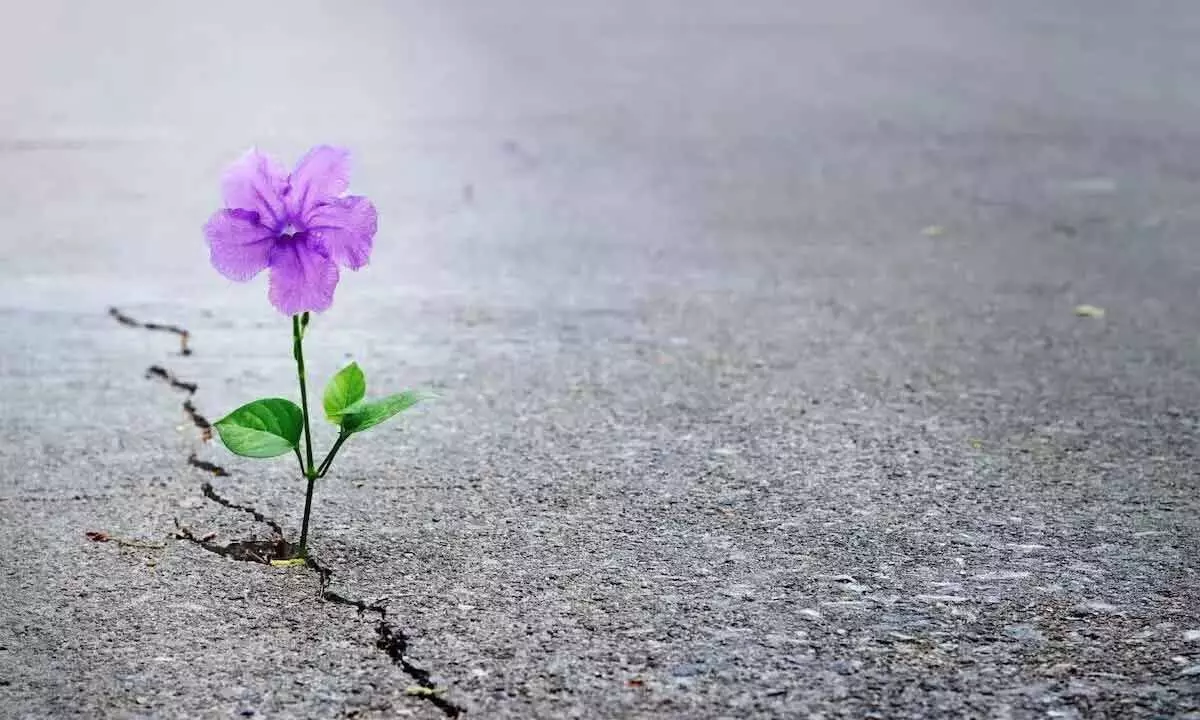Reasonable hope enough to cope with uncertainty

Reasonable hope enough to cope with uncertainty
Hope is practical and can directly benefit decision-making on one hand and is the fuel that drives us to overcome adversity on the other
You have to maintain a fine balance between hope and despair. In the end it's all a question of balance
– Rohinton Mistry, A Fine Balance
Chaos is the undeniable truth of the present epoch. Uncertainty marks all our days, in a world where big events are as dynamic as it gets and our lives are marred in relentless change.
In such times, being hopeful often seems to be anirrational, emotional response to hard factual realities and some kind of misguided optimism. After all, when we are pushed to our limits, words like hope do appear to be mere platitudes. Yet, it is to be understood that rationality and emotion do not have to be torn asunder and can inform each other. Hope is not fancy, it is the faith that drives us, a desire to make our lives and the world better with the passing of time and sometimes, in crisis, it is all we have and all that gets us out of it. Therefore, hope does not have to necessarily be irrational, for there is a possibility of faith that can work with reason. This idea of reasonable hope merits an engagement.
To start, let us look at the etymological roots of the word 'hope'. It comes from the Old English hopa, meaning "confidence for the future". At its roots then, hope is conceptually about looking at a better future, and there is no reason for it to be wilful and whimsical. The confidence in the future does not have to be boundless and heedless optimism, but can be realistic. During the worst phases of the Covid-19 pandemic, when humanity was pushed to its darkest hours, there was little solace in mindless hoping. However, taking into account the despair caused by the trouble and examining our plight, we soldiered on, knowing how bad the difficulty was and what good possibilities can be actualized in the future. At first, we took stock of the problem, the magnitude of the viral spread and the distress caused by it and subsequently crafted ways out of it, while keeping our solidarities in place. From containment to vaccination, every milestone was achieved through this reasonable faith, with acknowledgement of trouble but also with a will to challenge it, one step at a time. Hope, then when made realistic, turned out to be a driver of our resilience and eventual resurgence.
In the same vein, Deborah Mills-Scofield, writing for the Harvard Business Review, in fact, deems hope to be a strategy, noting how it can be strategic when based on what is possible. She writes, "Hope is the belief that something is possible and probable, and the recognition that the degree of each is not necessarily equal. When hope is based on real-world experience, knowledge and tangible and intangible data, it results in trust, which is necessary to implementing any strategy. Without faith in the people, processes and technologies involved, how can we achieve anything? Hope recognizes the reality that failure happens, success is not assured, the laws of physics don't change and prudence is needed to discern when to persevere - and when to pivot. Hope doesn't demarcate a linear path, but it does guide us through twists and turns. Hope views the glass as half full, not half empty. Hope supports realistic optimism, a necessary component of success."
This is the fundamental virtue of stepping outside convenient boundaries. When hope or the faith in a nicer tomorrow is accompanied with reason, we have scope for a motivated endeavour. In other words, instead of making reason the basis for despair, hope can take into account the problems we face and with a pragmatic assessment, provide the basis for a reasonable confidence and a will to improve things. At the same time, when the efforts are judicious, hope can be rejuvenated and bolstered on account of spirited attempts towards glorious outcomes.
Therefore, hope can both be a ground for and a product of rational thinking and consequently, does not have to be reduced to a platitude. Hope is practical and can directly benefit decision making on one hand and is the fuel that drives us to overcome adversity on the other. This holistic idea of hope, bringing together its emotional richness and possibilities of rationality can serve as the most crucial ingredient in keeping us afloat and thriving through the daunting rigmarole of everyday life.
(The author is Chief Impact Officer at Recykal Foundation)








